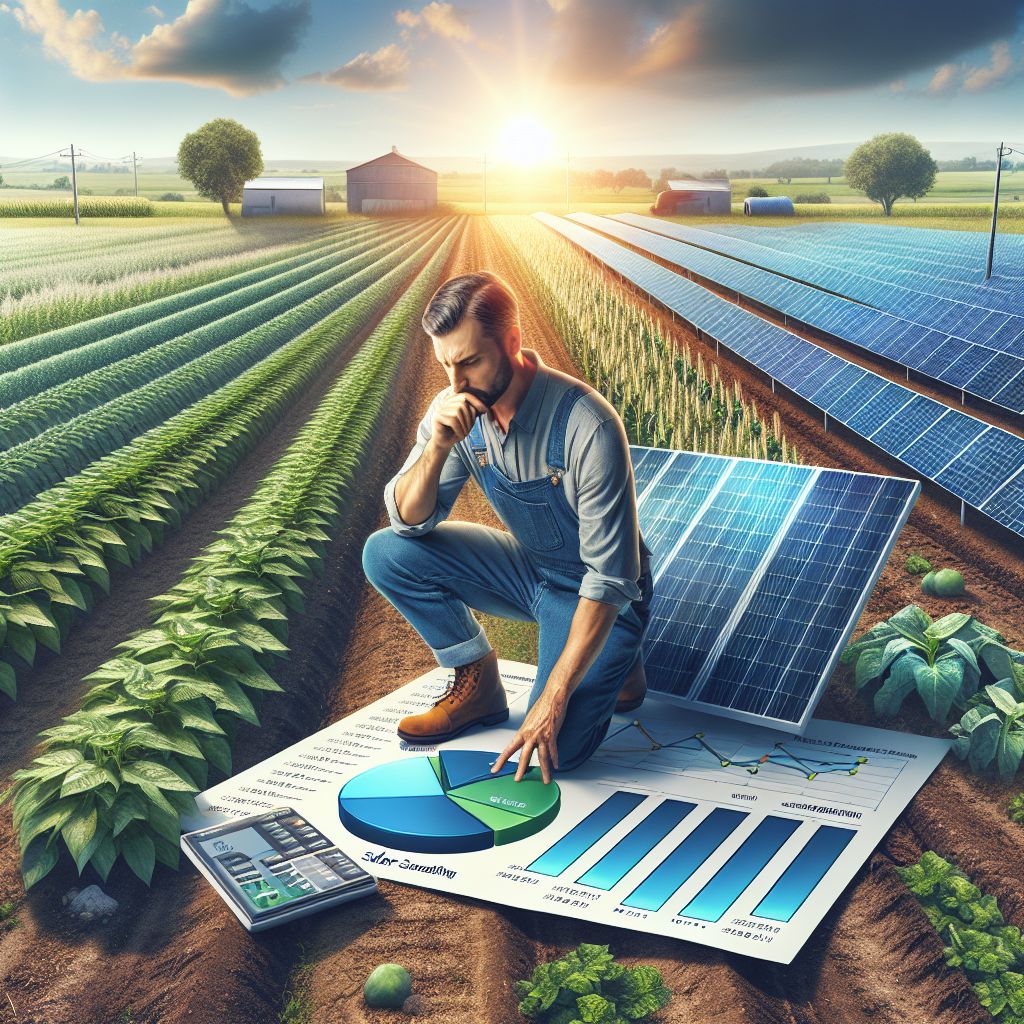
Article-at-a-Glance
Solar panels can help farmers save a lot on energy costs, but deciding whether to buy or lease them requires some serious thought.
Purchasing solar panels comes with a large upfront cost, but it can lead to long-term savings and possible tax benefits.
Leasing solar panels comes with low upfront costs and maintenance coverage, but it may also come with long-term financial obligations.
- Understanding your farm’s energy needs and financial situation is key to deciding whether buying or leasing is the best option.
When investing in solar energy for your farm, it’s important to consider your sustainability goals and property value.
From Sun to Soil: Considering Solar Panel Investments for Farming
As someone who takes care of the land, you know that each seed you plant is a step towards a more sustainable future. Likewise, each decision you make on the farm can have an impact not only on your crop yield, but also on the environment and your bottom line. Solar panels for agriculture are like seeds for energy – they need to be cared for properly in order to increase savings and sustainability. Let’s delve into the details of buying versus leasing solar panels, and what that means for the ground under our feet and the sky over our fields.
Upfront Expense vs Future Savings
When mulling over solar panels, it’s essential to weigh the upfront expense against the possible future savings. Buying solar panels outright can appear daunting because of the initial costs. However, much like a carefully nurtured crop, the initial outlay can generate substantial returns over time. It’s an investment in the wellbeing of your farm and the planet.
Buy or Lease: Which is Right for Your Farm?
The decision to buy or lease solar panels is like deciding whether to buy or rent a tractor. When you buy, you’re in control and can enjoy the full benefits over the long term, but leasing can offer short-term flexibility and convenience. The right choice for you will depend on your farm’s unique needs, financial situation, and sustainability goals.
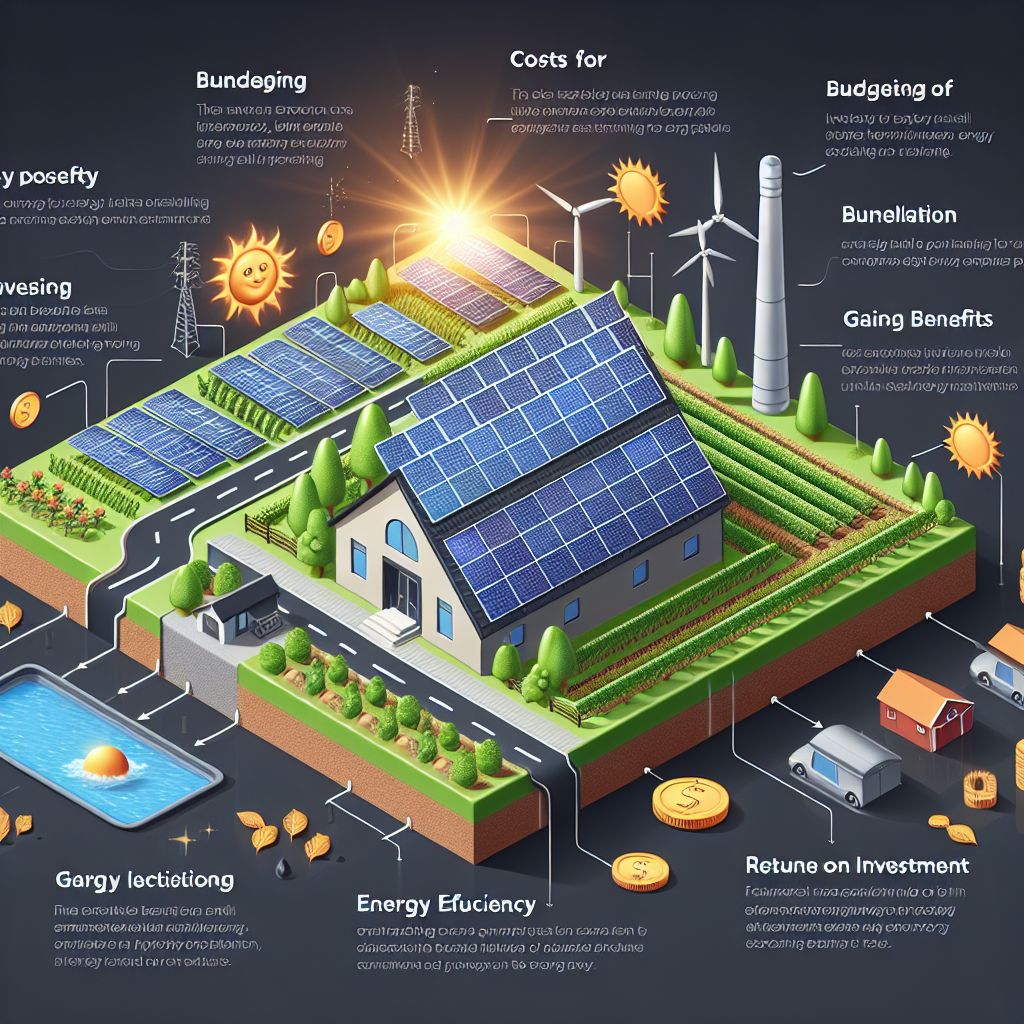
Understanding the Costs: Purchasing Solar Panels for Your Agricultural Business
It’s time to dig into the details. The prospect of purchasing solar panels might seem overwhelming initially, but the financial terrain is more promising than you might think. With the typical cost of solar panels ranging between $12,600 and $31,500 after federal tax credits, it’s crucial to carefully consider the numbers.
Upfront Costs: Don’t Forget These Expenses
The upfront costs include more than just the panels. You’ll also need to budget for the cost of installation, any necessary electrical system upgrades, and the infrastructure to support the panels. But don’t let these costs scare you off; incentives and the promise of lower energy bills are just around the corner.
Harvesting the Perks: Tax Credits and Incentives
Purchasing solar panels is akin to sowing the seeds for a future filled with financial rewards. The initial cost can be substantially reduced through tax credits and incentives. For example, the federal solar investment tax credit (ITC) provides you with the opportunity to deduct a portion of the solar panel costs from your federal taxes. These incentives are the metaphorical rain that helps your investment flourish.
How Longevity and Efficiency Impact ROI
The lifespan and productivity of your solar panels are the foundation of your return on investment (ROI). Top-notch panels can endure for many years, and as energy prices increase, so will your savings. It’s a slow process, but it can ensure energy autonomy for your farm and a sustainable legacy for future generations.
This below table is comparing the key benefits of buying versus leasing solar panels for a solar irrigation system on a farm:
|
Benefit |
Buying Solar Panels |
Leasing Solar Panels |
|---|---|---|
|
Upfront Cost |
Higher upfront investment of $12,600 to $31,500 on average. 2, 4 | |
|
Tax Credits & Incentives |
Can claim federal solar tax credits and other solar incentives. 1, 2, 4 |
Cannot claim tax credits or incentives since you do not own the system. 1, 2, 4 |
|
Long-Term Savings |
Higher long-term savings as you fully own the system after loan is paid off. 1 |
May not result in as much long-term savings if lease payments exceed utility bill savings. 3 |
|
Land Use |
Can continue using land for other farming operations like grazing or growing crops. 1, 3, 5 |
May need to work out details with solar developer on continued land use. 1 |
|
Ownership |
Do not own the solar panels, only lease them for 10-25 years. 1, 3 | |
|
Maintenance |
Responsible for maintenance and repairs after warranty period. 2 |
Solar company is responsible for maintenance and repairs during lease term. 1, 3 |
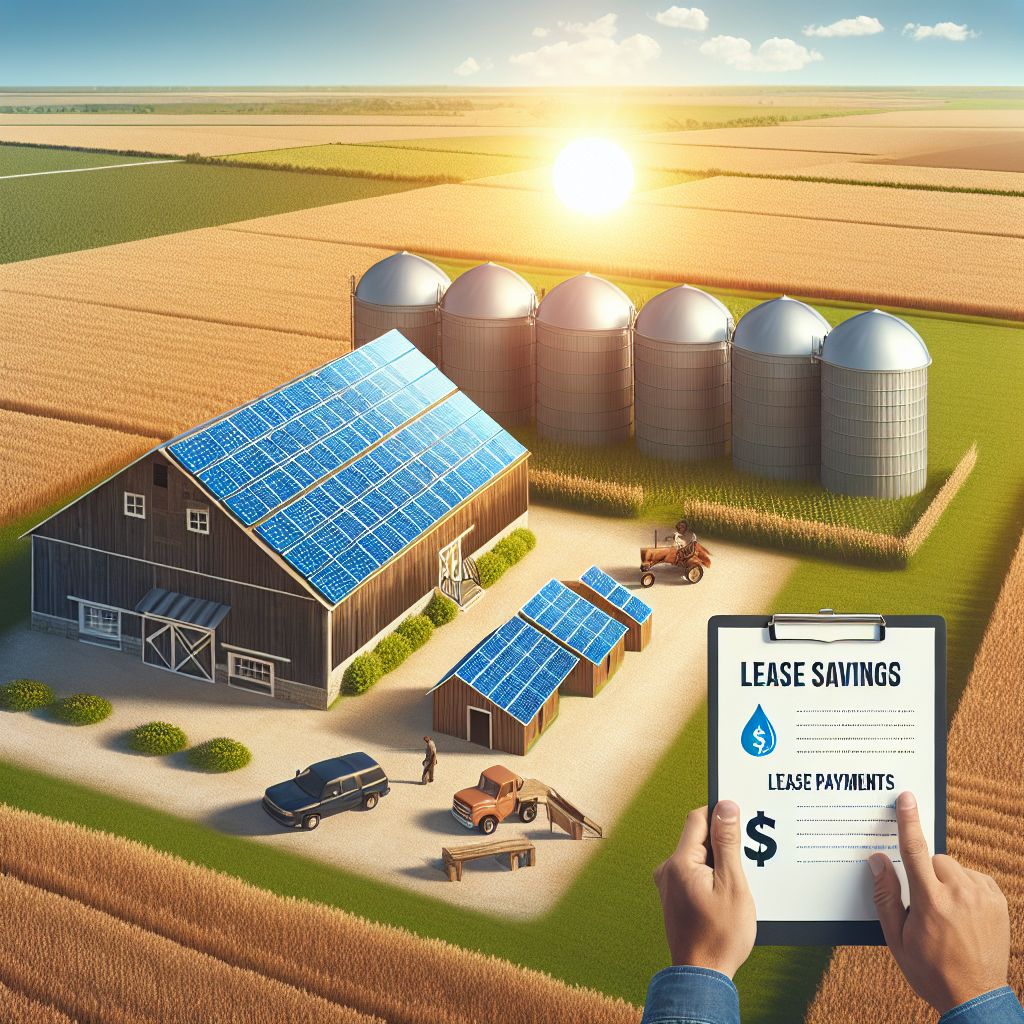
Is Leasing Solar Panels a Viable Option?
Leasing solar panels is another option to consider. It’s often less intimidating upfront, similar to renting equipment when you’re not ready to buy. You’ll have little to no initial costs, and maintenance is usually covered by the leasing company. However, keep in mind that with leasing, you’re not the owner, which has long-term implications.
The Lure of No Initial Costs
Leasing solar panels is appealing as it reduces initial costs. You can start cutting your energy costs almost instantly without a large initial investment. It’s like having the tractor you need for the season’s harvest without having to purchase it – it accomplishes the task while freeing up your cash flow for other investments.
Leasing is known for its flexibility and simplicity, but it comes with terms that require careful thought. The lease agreements will specify the length of the lease, which usually varies from 10 to 25 years, and the terms for using the solar panel system. You’ll need to comprehend the small print, including any limitations on transferring the lease if you choose to sell your property.
Understanding Lease Terms: What You’re Signing Up For
Lease agreements can come with a few strings attached that could impact your farming operations. You may be required to stick to specific maintenance schedules or face limitations on system modifications. Make sure you understand what you’re agreeing to so you don’t get caught in a lease that hinders your farm’s expansion or transition plans.
Also, lease agreements might have escalator clauses that raise your payments over time. This means that while your payments might be low at first, they could increase, possibly reducing the money you’re saving on your energy bills. It’s important to forecast these costs and weigh them against the anticipated energy cost savings.
Lease Payments vs. Savings: A Long-Term Cost Comparison
When considering a lease, it’s important to look at the big financial picture. Monthly lease payments can accumulate over time, and you may end up paying more over the lease term than if you had purchased the panels outright. To make a well-informed choice, weigh the total lease payments you’ll make over the years against the savings you’ll gain from lower energy bills.
For instance, if you’re shelling out $200 every month to lease solar panels, that adds up to $48,000 over a 20-year lease. Now, if the purchase of the panels would have set you back $30,000, and you’re saving $150 a month on energy, that amounts to $36,000 in savings over the same period. In this case, the lease would end up costing you more.
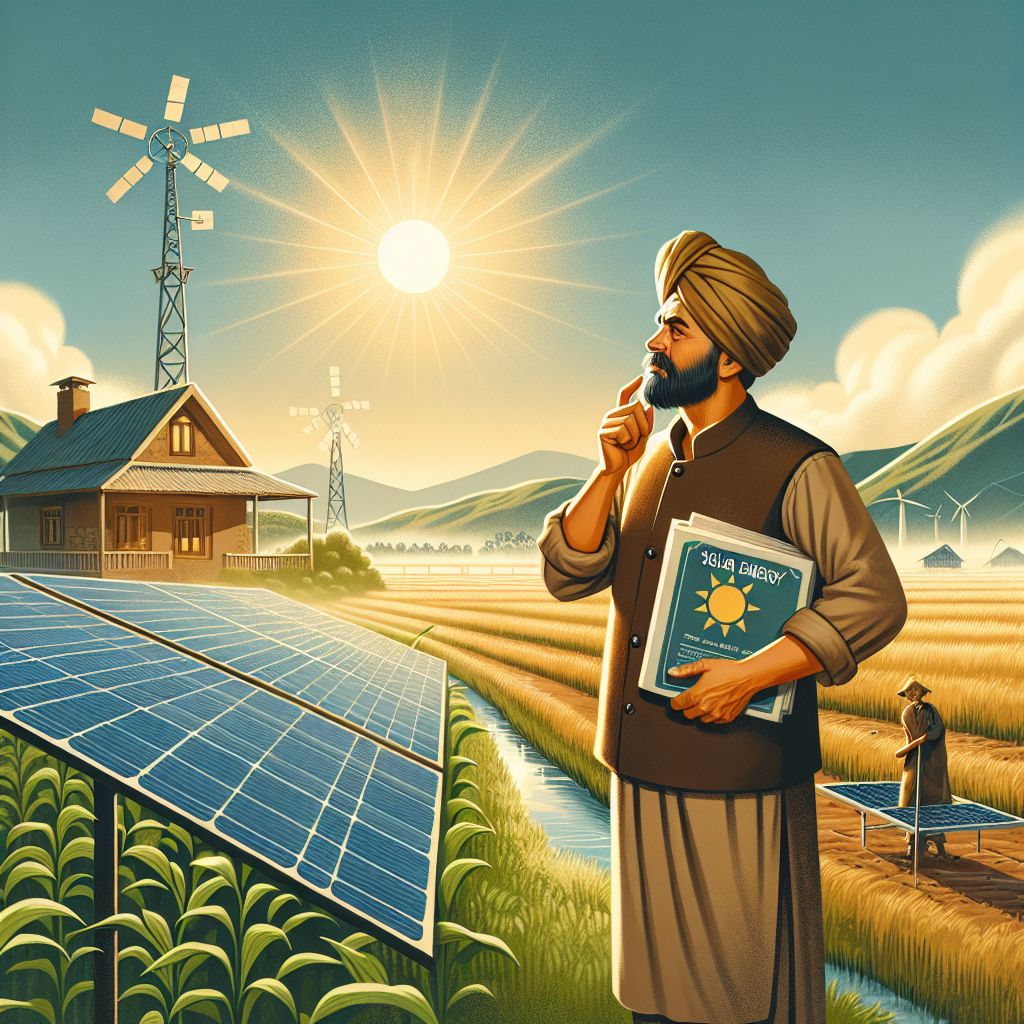
Making the Decision: What Farmers Need to Keep in Mind
The decision to buy or lease solar panels is not a one-size-fits-all solution. It requires a thorough examination of your farm’s unique situation and a realistic evaluation of your financial and energy objectives. Here are some factors to help you make this crucial decision:
Take stock of your farm’s current energy usage and what you’ll need in the future.
Figure out what you can afford to pay upfront versus the need for immediate energy savings.
Take into account the long-term financial effects, including the possibility of increased property value from owning solar panels.
Consider your dedication to sustainability and how owning solar panels fits in with that.
Make sure you understand the terms and conditions of any lease agreement and how it could affect your farm’s operations.
It’s also a good idea to talk to a financial advisor or a solar energy expert who can give you a detailed analysis that’s specific to your situation.
This below table shows more things farmers need to keep in mind when deciding to buy or lease solar panels for a solar irrigation system on their farm:
|
Consideration |
Buy |
Lease |
|---|---|---|
|
Upfront Costs |
Requires a significant upfront investment to purchase the solar system. 3 |
No upfront costs, the solar developer covers the installation and equipment. 1, 2 |
|
Ownership |
Farmer owns the solar panels and equipment and has full control over it. 3 |
The solar developer owns the system, you are leasing the use of their equipment. 1, 2 |
|
Maintenance |
Farmer is responsible for maintaining the solar panels and equipment. 3 |
Solar developer is responsible for maintaining the solar panels and equipment. 1, 2 |
|
Lease Payments |
You own the system outright after it’s paid off. 3 |
Farmer receives lease payments from the solar developer for use of their land. 1, 2 |
|
Contract Length |
No long-term contract, but higher upfront costs3 |
Typically 20-25 year lease agreements with the solar developer. 1, 2 |
|
Tax Credits/Incentives |
Farmer can claim federal and state tax credits and deductions for owning the system. 3 |
Solar developer claims the tax credits and incentives, which can lower lease payments to the farmer. 1, 2 |
|
Land Use |
The solar system takes up a portion of your land, but you maintain control over the rest. 3 |
The solar developer has exclusive use of the leased land for the duration of the lease. 1, 2 |
Assessing Your Agricultural Energy Requirements
Begin by assessing your agricultural energy needs. Examine your energy bills for the past year to get a sense of your monthly and seasonal usage. This will aid you in determining the size of the solar panel system you require and whether the energy produced will significantly offset your current energy expenses.
Planning Your Finances: Initial Investment vs. Ongoing Costs
Planning your finances for solar panels is similar to planning for any other significant agricultural expense. If you opt to buy, you’ll have to consider the initial investment, which may involve dipping into your savings, securing a loan, or looking into financing options. Alternatively, leasing provides a method to bypass upfront costs, but you’ll have to factor in the continuous monthly lease payments.
As you consider your options, it’s important to look beyond just the financial implications. You also need to think about how this decision could affect the day-to-day running of your farm. Whether you decide to buy or lease solar irrigation systems, you need to make sure it fits in with your broader farm management plan and your long-term sustainability objectives.
Looking to the Future: Environmental Sustainability and Increased Property Value
Purchasing solar panels is not just about saving money today; it’s about investing in a more sustainable future. Solar panel ownership can raise the value of your farm, showing potential buyers that you’re running a modern, energy-efficient operation. It’s a physical asset that can provide energy security in an unpredictable world. Above all, it shows that you’re dedicated to environmentally friendly practices that will protect our environment for future farmers.
Conclusion: Should Farmers Buy or Lease Solar Panels?
In conclusion, for farmers who can handle the initial costs, purchasing solar panels is often the best long-term investment. It provides autonomy, long-term savings, and the possibility of increasing property value. Leasing is a good option for those who want immediate savings with little initial investment, but it can result in higher costs over time and less control over the energy system. Consider your options, evaluate your financial situation, and choose the option that aligns with your sustainability goals and economic impact to make the best decision for your farm.
Common Questions
These are a few of the usual questions that farmers have when they are thinking about getting solar panels for their farms:
How Does Leasing Solar Panels Affect the Operating Costs of My Farm?
Leasing solar panels can help you save on your monthly energy bills, thus reducing operating costs. However, you need to consider the lease payments in your budget. These payments are usually fixed, which makes it easier to budget, but they may increase over time if your contract has an escalator clause.
What is the duration of the lease and what happens when it ends?
The lease duration for solar panels is usually between 10 and 25 years. When the lease ends, you might have the option to extend the lease, buy the system at a fair market price, or remove the system. It’s crucial to know your options and any costs involved before you sign a lease contract.
What If I Sell My Farm and I Leased Solar Panels?
If you decide to sell your farm, you can usually transfer the lease to the new owner. This will depend on the terms of your lease agreement. Some buyers might see the solar lease as a benefit, while others might see it as a burden. It’s crucial to talk about the solar lease with potential buyers early in the sales process.
When Can I Expect to Start Seeing a Return on My Investment in Solar Panels?
The amount of time it takes for your solar panels to pay for themselves can depend on a variety of factors, such as the cost of the system, how much electricity it produces, and the price of electricity where you live. On average, farmers can expect to start seeing a return on their investment 5 to 10 years after they buy their solar panels.
Do I get any tax credits, incentives, or net metering benefits if I buy the solar panels instead of leasing them?
If you buy solar panels, you usually get tax credits like the federal solar investment tax credit. You might also get state incentives and net metering benefits. If you lease solar panels, you might not get as many tax benefits because the leasing company usually gets them. You should look up the incentives in your area and talk to a tax professional.

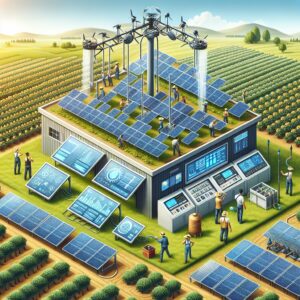
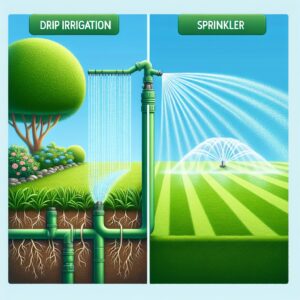
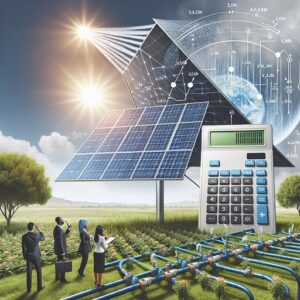
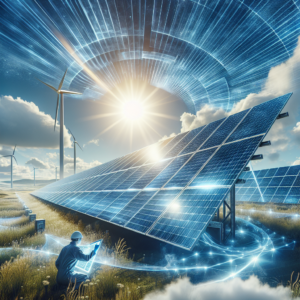
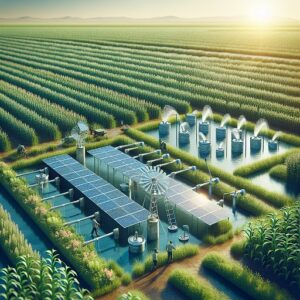
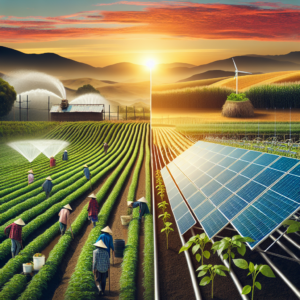
Leave a Reply